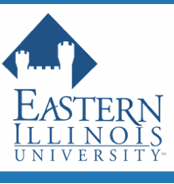Preferred Delivery
Virtual
Length of Presentation
50 minutes
Start Date
7-10-2022 3:00 PM
End Date
7-10-2022 3:50 PM
Document Type
Presentation
Abstract
Understanding and successfully implementing inclusion is something that families and professionals often find to be a challenge. Are you looking to support families and professionals to understand what inclusion is, how it looks and how to advocate for it? Learn about an online resource package equipped with tools that are organized for informal and formal learning for use by (and with) families, service coordinators, practitioners, faculty and administrators to understand and promote inclusion.
Description
This session is designed for faculty, staff and students who are interested in increasing their understanding of early childhood inclusion, and gaining resources to support students and families. Participants will learn about bite-size modules with embedded resources and activities to help families and professionals understand, promote, and advocate for inclusion for children birth to age 5. Participants will gain access to resources and materials that explore six topics on inclusion for use by families, practitioners, service coordinators, educators, faculty and administrators within formal and informal learning opportunities. We will review companion tools and explore ways they may be used to facilitate discussions and extend learning opportunities with families and professionals, and discuss ways to implement or adapt materials for use with families and professionals. Materials are available in both English and Spanish and can be used to help inform and advocate for inclusive practices across settings and situations.
Recognizing the diversity of learners, and key features of evidence-informed professional development, the materials include illustrative examples, narrated slides, embedded reflections, video clips, and extended learning activities. This package also aligns and references evidence-based content as it covers an orientation to the inclusion journey, Least Restrictive Environment (LRE), commitment to inclusive practices (laws/policies), benefits to inclusive practices, inclusive settings, and implementation and advocacy for inclusion. This presentation will be organized around the learning objectives and anticipated participant outcomes. Adult learning principles and key features of evidence-informed professional development will be embedded such as: 1) explicit explanation and illustration of the packaged materials available for families and professionals working to understand inclusion, 2) opportunities to consider ways the materials may be implemented or adapted for programs, states or territories participants represent, 3) opportunities to discuss, reflect and ask questions, and 4) access to tools and resources to assist in future application.
Creative Commons License

This work is licensed under a Creative Commons Attribution-Noncommercial-No Derivative Works 4.0 License.
Included in
Advocacy from the Start: Understanding Inclusion
Understanding and successfully implementing inclusion is something that families and professionals often find to be a challenge. Are you looking to support families and professionals to understand what inclusion is, how it looks and how to advocate for it? Learn about an online resource package equipped with tools that are organized for informal and formal learning for use by (and with) families, service coordinators, practitioners, faculty and administrators to understand and promote inclusion.





Speaker Information
Tammy Wrobbel has a Master of Science degree in Developmental Therapy from Henderson State University and Bachelor’s degree in Speech Communication from Southern Illinois University Edwardsville. She is also a parent of young adults who are uniquely abled. She is an Inclusion Specialist with Early CHOICES and recently worked with Head Start/Early Head Start agencies coordinating specialized services and performing systems work. With nearly 20 years of experience as a Child Development Specialist and Developmental Therapist, Tammy Wrobbel has served children, families, and staff specializing in care for children ages birth to five. She has specific training and education related to cognitive delays, extreme prematurity, genetic abnormalities, atypical tone, sibling involvement, family communication, pervasive developmental disorders and sensory processing disorders.